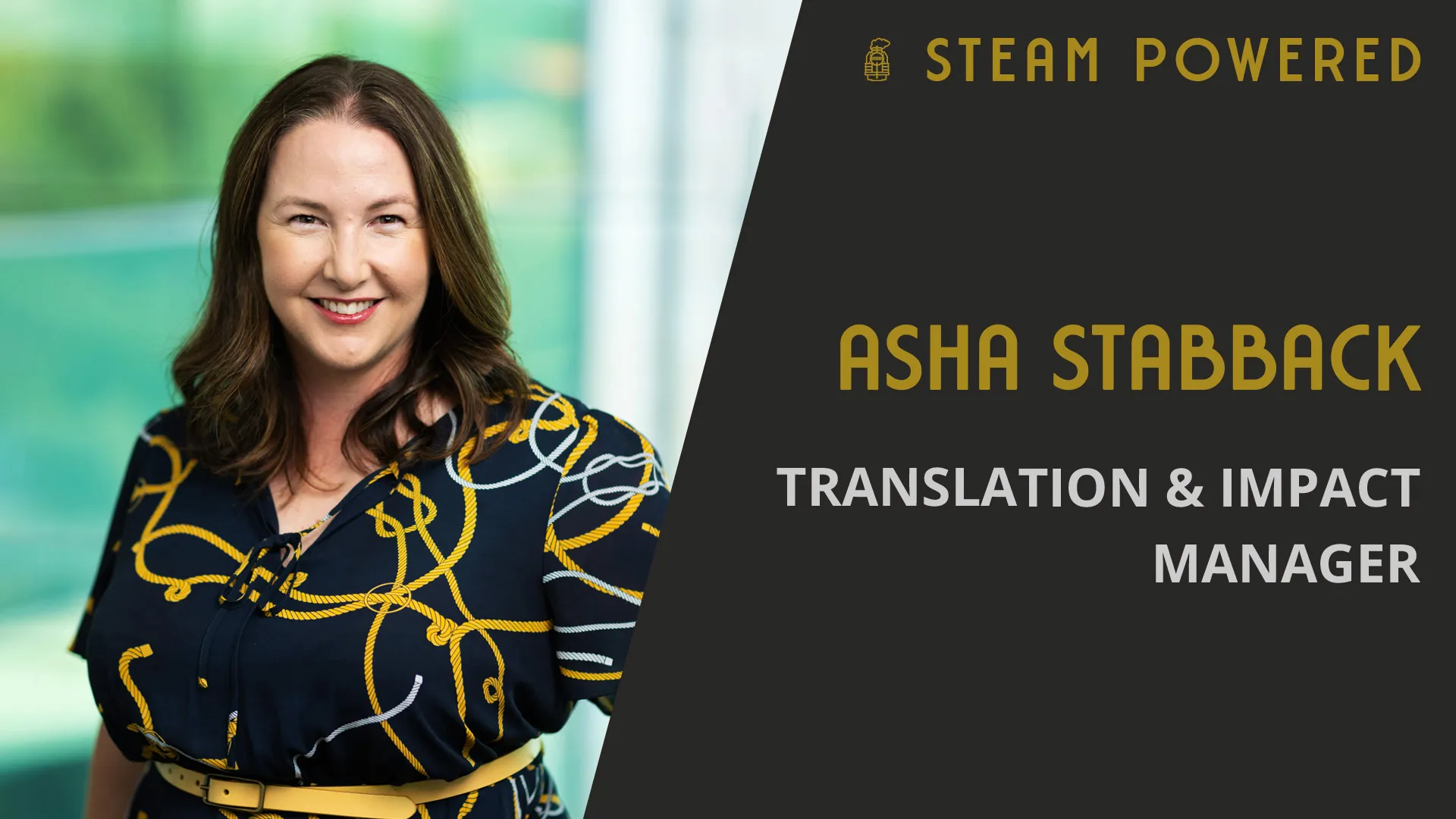Live virtual music experiences using emerging technologies with Sally Coleman
The world of musical and creative expression is continuously evolving, and there are more ways to create and engage with music, and audiences, than ever before. It all starts with an enquiring mind and a desire to explore new frontiers.
Sally Coleman is a musician and creative director of the science fiction virtual band Big Sand. Join us as we speak with Sally about her journey to developing Big Sand, creating engaging virtual music experiences, and the role of emerging technologies in the creative industries.
About Sally Coleman
Sally Coleman is a musician, radio personality and the creative director of a new science fiction virtual band called Big Sand.
Big Sand is an animated band that sees Sally using motion capture and Unreal Engine to bring the characters to life. Set on a beautiful but harsh desert planet, the project is a playful expedition into the world of emerging technology and different ways of envisioning the future music industry.
Sally is undertaking a PhD in motion capture for live music performance at UTS, where she is continuing the research and development of Big Sand’s world-first live show. Big Sand’s live performance involves Sally appearing as an avatar in real time, to interact with an audience in a remote venue.
Big Sand’s most recent show was part of SXSW Sydney.
- Big Sand: https://www.bigsand.band/
- TikTok: @bigsandband
- Instagram: @bigsandband
- TikTok: @thesallycoleman
- Instagram: @thesallycoleman
Listen to the Podcast
Listen on Apple Podcasts, Spotify, iHeartRadio, Amazon Music, Castbox, Deezer, Goodpods, Overcast, Pocket Casts, TuneIn, Blubrry, Podcast Addict, Podchaser, JioSaavn, RSS , and other podcast platforms.
Watch on YouTube
- [00:00:55] Sally's beginnings with communication studies
- [00:02:07] Music has always been part of Sally's creative life.
- [00:03:02] Evolving within the music industry.
- [00:04:52] Competition, exploitation, and compromise when the lines are blurred between passion and occupation.
- [00:07:41] Remembering that you're a business as well.
- [00:09:23] Exploring virtualised bands and alternative methods of audience engagement.
- [00:11:53] Discovering that live performance might be possible in this medium.
- [00:14:14] Finding community with others who are also doing their form of R&D.
- [00:15:37] Avant Hard Drive, a community of creatives in emerging technologies.
- [00:17:24] Prior art in virtual concept bands like Gorillaz and Hatsune Miku.
- [00:20:37] The challenges of developing with emerging technologies and building cars for roads that don't exist yet
- [00:23:05] Feeling authentic in your own medium.
- [00:26:06] The changing landscape of events and recreation.
- [00:28:48] Unreal Engine and virtual production.
- [00:31:32] The technology is more than just a tool, it's now part of the creative process.
- [00:33:21] Technology facilitating immersive art.
- [00:35:23] Big Sand as a live performance with audience engagement in a virtualised environment.
- [00:40:30] The future for Big Sand.
- [00:41:51] What advice would you give someone who would like to do what you do, and what advice should they ignore?
Connect with Us
- @steampoweredshow
- @steampoweredshw
- @steampoweredshow
- @steampoweredshow
- @steampoweredshow
- @steampoweredshow
- steampoweredshow
Support STEAM Powered
Review Us
Please leave us a review on Apple Podcasts, Spotify, GoodPods, Podchaser, or your preferred podcatcher.
Become a Patron
Affiliate Programs
Start your own podcast or YouTube channel, or run panels and seminars with
Riverside.fm. Record up to 8
people in a session with up to 1000 audience members. You can record in advance
as I do, or you can livestream with the option to send it straight to Facebook,
Youtube, Twitter, or Twitch. There’s even a green-room for guests and live call
in for audience members. Afterwards, get separate video (up to 4K) and audio (up
to 48kHz) tracks per recorded participant for editing, none of that “active
speaker only” limitation. You know you’re in good hands with a service whose
client-base includes some heavy-hitters. Check out
Riverside.fm to see who else is on
board. Use promo code STEAM25 to get 25% off the first three months of your
subscription.
Music is “Gypsy Jazz in Paris 1935” by Brett Van Donsel.

